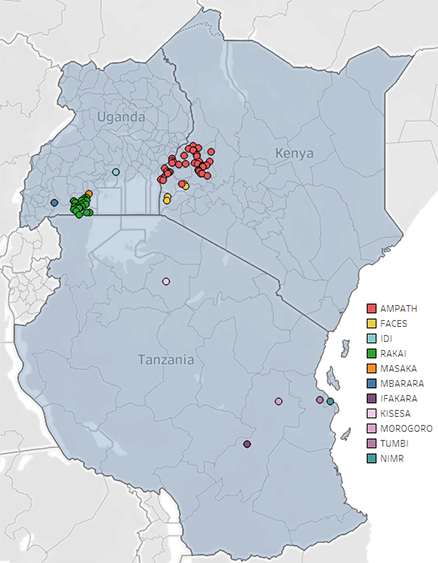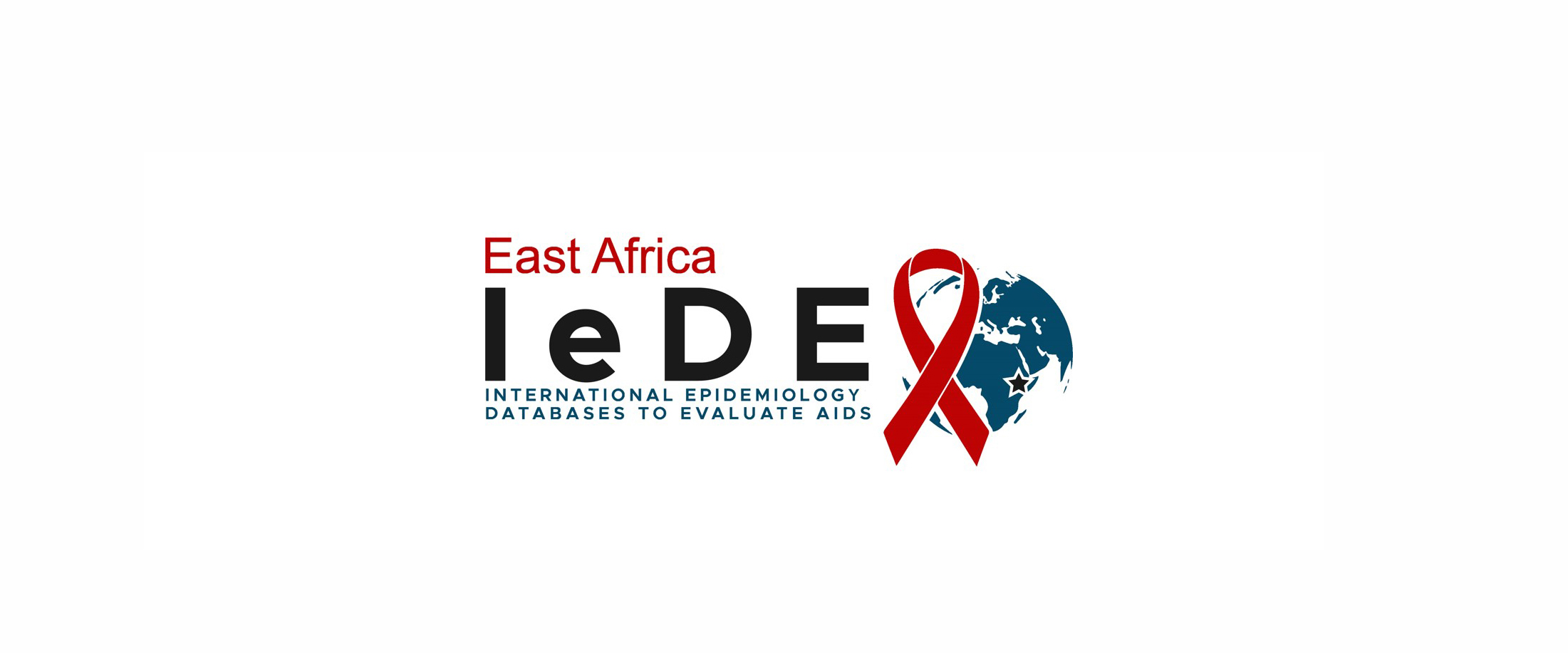The East Africa International epidemiology Databases to Evaluate AIDS (IeDEA-EA) is one of seven regional data centers funded by the U.S. National Institutes of Health to provide a rich resource for globally diverse HIV/AIDS data. Indiana University School of Medicine leads the East Africa region in collaboration with the University of California San Francisco (US), Columbia University (US), Mt. Sinai (US), Duke University (US), University of Alabama at Birmingham (US), Moi University (Kenya), Kenya Medical Research Institute (KEMRI), Infectious Disease Institute-IDI (Uganda), Masaka Regional Hospital HIV Care Clinic (Uganda), Rakai Health Sciences Program (Uganda), Mbarara University ISS Clinic (Uganda), the National Institute for Medical Research (NIMR) Morogoro Regional Hospital, Tumbi Special Hospital and the Kisesa Health Centre (Tanzania).
East Africa International epidemiology Databases to Evaluate AIDS

Each region in the IeDEA consortium collaborates with clinical sites to identify and define key variables, harmonize and effectively analyze the data to generate large datasets. These data have been merged across regions to address research questions related to the impact of the global ART rollout on HIV-related clinical outcomes and helped inform global agencies such as WHO and UNAIDS.
IeDEA-EA maintains summary data visualizations to help monitor key outcomes and cohort characteristics within the East Africa region.
East Africa IeDEA Featured in IeDEA Global Newsletter
The September IeDEA Global newsletter highlights East Africa IeDEA research on adverse pregnancy and newborn outcomes, virus-related cancers and the IeDEA dashboard:
Announcing the 2024 trainee class for the Fogarty-IeDEA Mentorship Program (FIMP)

In collaboration with the Fogarty International Center (FIC) of the US National Institutes of Health, six IeDEA regions working in low- and middle-income countries have created training opportunities for participants of FIC D43 HIV research and training programs, as well as for IeDEA regional investigators.
The FIMP is designed to help trainees develop skills in study design, data management, analysis, interpretation and dissemination of research involving large HIV clinical databases generated within IeDEA. As part of the FIMP, mentees will have access to IeDEA regional data for analyses that are conducted under the supervision of their respective IeDEA region.
East Africa
- Raphael Onyango Mando (Kenya)
- Wilhellmuss Isael Mauka (Tanzania)
Southern Africa
- Petros Tembo, (Malawi)
- Precious Motlokwa-Moedi (Botswana)
West Africa
- Folahanmi Tomiwa Akinsolu (Nigeria)
- Yao Rodion Konu (Togo)
Asia-Pacific
- Chatkamol Pheerapanyawaranun (Thailand)
- Thinh Toan Vu (Vietnam)
Central Africa
- Annabelle Niyongabo (Burundi)
- Gabriel Mabou (Cameroon)
- Eulade Rugengemanzi (Rwanda)
CCASAnet
- Samuel Pierre (Haiti)
- Rodrigo Ville Benavides (Mexico)
Advancing Long-Term HIV Care and Treatment Strategies
Offering Expertise in Data Management and Research
The East African Regional Data Center houses expertise in merging, sharing and analyzing routine data collected within HIV care and treatment programs as well as proficiency in the design, conduct and analysis of implementation research.
IeDEA Data Exchange Standard (IeDEA DES) is a common data model for sharing observational HIV data.
Leading a Worldwide Partnership
With leadership from IU School of Medicine and its faculty, IeDEA East Africa has partners in Uganda, Kenya, Tanzania and North America.IeDEA International epidemiology Databases to Evaluate AIDS
IeDEA is an international research consortium established in 2006 by the National Institute of Allergy and Infectious Diseases to provide a rich resource for globally diverse HIV/AIDS data.
For the most up-to-date information subscribe to the IeDEA Global newsletter or follow on Twitter.
Sponsors
Poster Presentations from 2021 All IeDEA Meeting
Poster presentations from East Africa IeDEA investigators recorded for the All IeDEA meeting are available for viewing.



